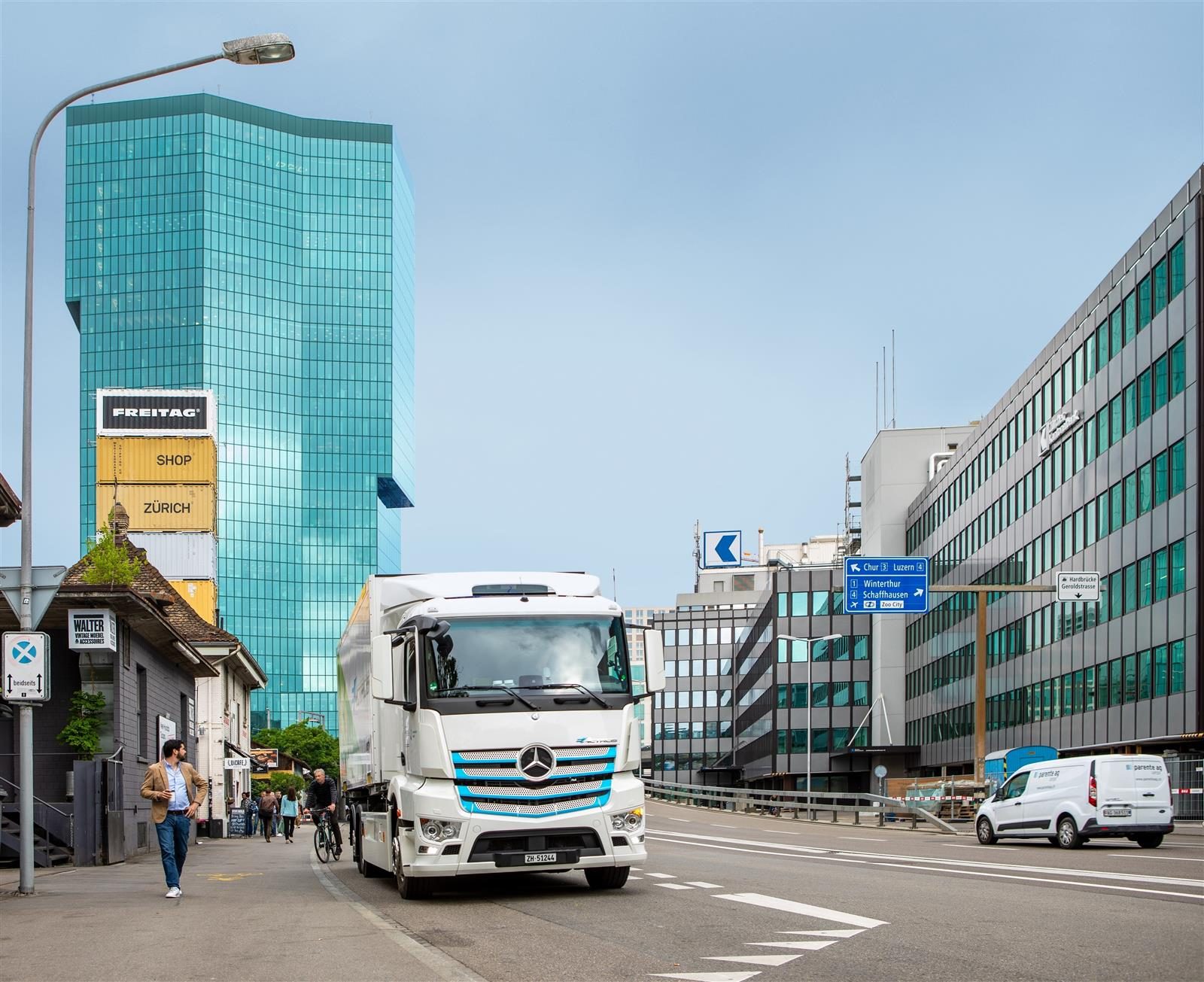eActros electric trucks successfully tested by customers for more than a year

The Mercedes-Benz eActros all-electric truck has been successfully undergoing tough real-world trials with customers for more than a year now. As part of the eActros ‘innovation fleet‘, in 2018 customers in Germany and Switzerland were provided with 10 18- and 25-tonne trucks for testing under real-world conditions.
The evaluation of tens of thousands of kilometres driven by customers as well as feedback from drivers, dispatchers and fleet managers will flow directly into the further development of the eActros toward series production, which is due to begin in 2021. Overall, the customer feedback and test results demonstrate that, with the Mercedes-Benz eActros, heavy-duty short-radius distribution is already possible with local zero emissions and quiet operation.
Next, another 10 customers will each take delivery of a first-phase eActros for further trials of around one year‘s duration.
“We‘re absolutely on the right track with the concept behind the Mercedes-Benz eActros,” said Andreas von Wallfeld, head of marketing, sales and services at Mercedes-Benz Trucks. “For me, this is the key finding after more than a year of extremely intensive real-world trials with our battery-electric heavy-duty short-radius distribution truck.”

Results from the practical tests showed the range of up to 200 kilometres of the eActros is a realistic figure – regardless of payload, route or topography. In terms of availability and performance, the eActros is in no way inferior to a conventional diesel-engine truck under any driving conditions. The cooling system for the cargo and the air-conditioning system – both electrically operated – functioned perfectly at not only very hot summer but also low winter temperatures. Drivers have been impressed by the continuously available torque across the entire speed range and particularly the vehicle‘s quiet operation and the pleasant, smooth driving experience. In addition, if the driver adopts an anticipatory driving style, electric energy can be recovered through recuperation, involving braking of the motors.
All ‘innovation fleet‘ customers use the eActros for tasks that would otherwise be carried out by conventional diesel vehicles – but in completely different sectors and categories. The spectrum ranges from groceries to building supplies and raw materials. The range of requirements means that the vehicles are fitted with a variety of bodies. The body variants range from refrigerated and box bodies to bulk goods and tarpaulin bodies.

The eActros is based on the frame of the Mercedes-Benz Actros. However, the vehicle’s architecture has been resolutely designed around an electric drive system and thus features a high percentage of vehicle-specific components. Two electric motors near the wheel hubs of the rear axle provide the drive, each delivering an output of 126kW and 485Nm maximum torque. Furthermore, the transmission ratio used sees this brought up to 11,000Nm on each wheel. The drive power is therefore on par with a conventional truck. Lithium-ion batteries with 240kWh capacity provide the eActros with the required energy. Depending on the available charging output, the batteries can be charged completely within as little as two hours (at 150kW).




